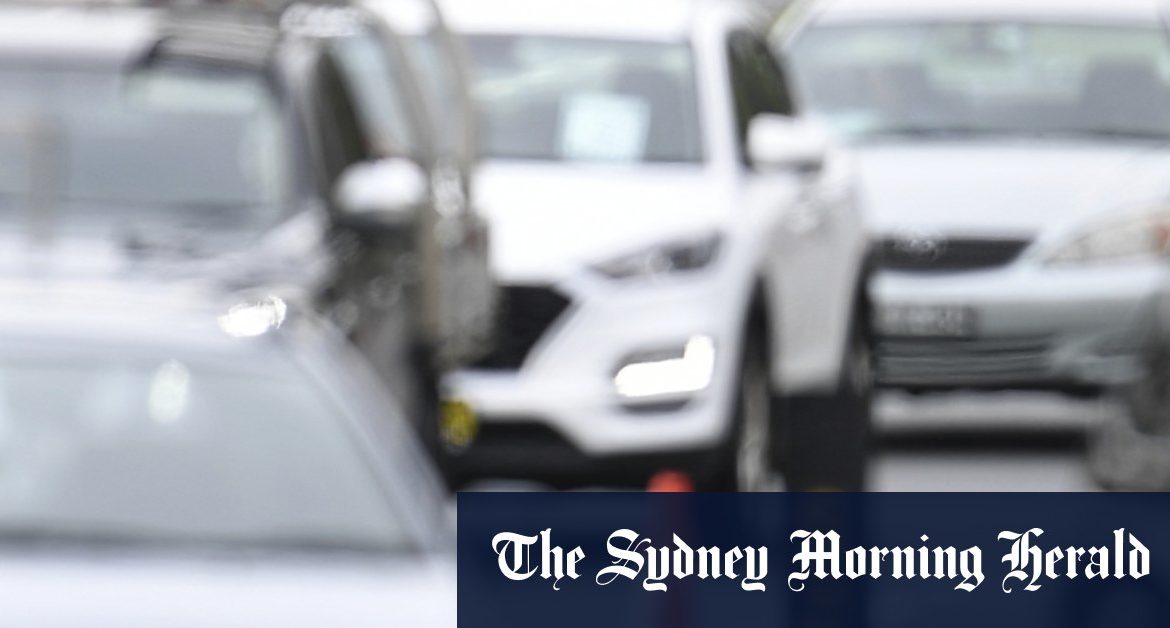The move comes as police began again rolling out physical checkpoints at the NSW border after concerns travellers who had been in the now hotspot-declared Greater Sydney region were slipping across.
Dismantled only weeks ago, and to be in place by 6am on Tuesday, the stops will allow officers to check the border passes now mandatory for anyone travelling from NSW. As of 1am on Monday anyone who had been in the hotspot is barred entry.
Vehicles queued up at a police checkpoint at the Queensland/NSW border in Coolangatta on Monday.Credit:Dan Peled
Those with exemptions, and Queensland residents from 1am on Tuesday, will be allowed to enter and undertake 14 days of hotel quarantine. Delays of up to two hours were already being reported at road borders on Monday. All inbound flights are being screened.
There have been 27 close contacts of confirmed Sydney Northern Beaches cases found in Queensland, all of which are now in quarantine, with one returning to New South Wales. Twenty of those have tested negative for COVID-19.
Contact tracing efforts around the woman in her 50s who returned to NSW have been frustrated at the Glen Hotel in Eight Mile Plains, south of Brisbane, after authorities encountered unreadable handwriting and patrons who had failed to check in at all.
Loading
More than 500 people who also visited the site on December 16 had already come forward, chief health officer Jeannette Young said. But she was concerned there may be more who have not yet been tested.
After flagging venues would have 72 hours to get their “house in order” with electronic check-in systems on Sunday, Ms D’Ath warned the government could establish fines for those who gave false information.
Ms D’Ath said the government was working with businesses to ensure the shift was not cumbersome and looking at its own platform “right now” but gave no timeline for its completion, pointing to the many free platforms available for use in the interim.
Digital and privacy experts have warned about the potential use and security of details collected by such third-party operators.
Monique Mann, co-chair of the Australian Privacy Foundation, said the government needed to also consider the impact on those without smart phones or unreliable mobile internet access.
UQ public health physician and epidemiologist Linda Selvey said the NSW QR code system seemed to be “quite effective” and it was a “pity” Queensland did not already have a unified system.
“It’s cumbersome for the people responsible but it also makes the tracing process more cumbersome,” she said, adding that a fine approach was also not “particularly useful”.
Matt Dennien is a reporter with Brisbane Times.
Most Viewed in National
Loading







